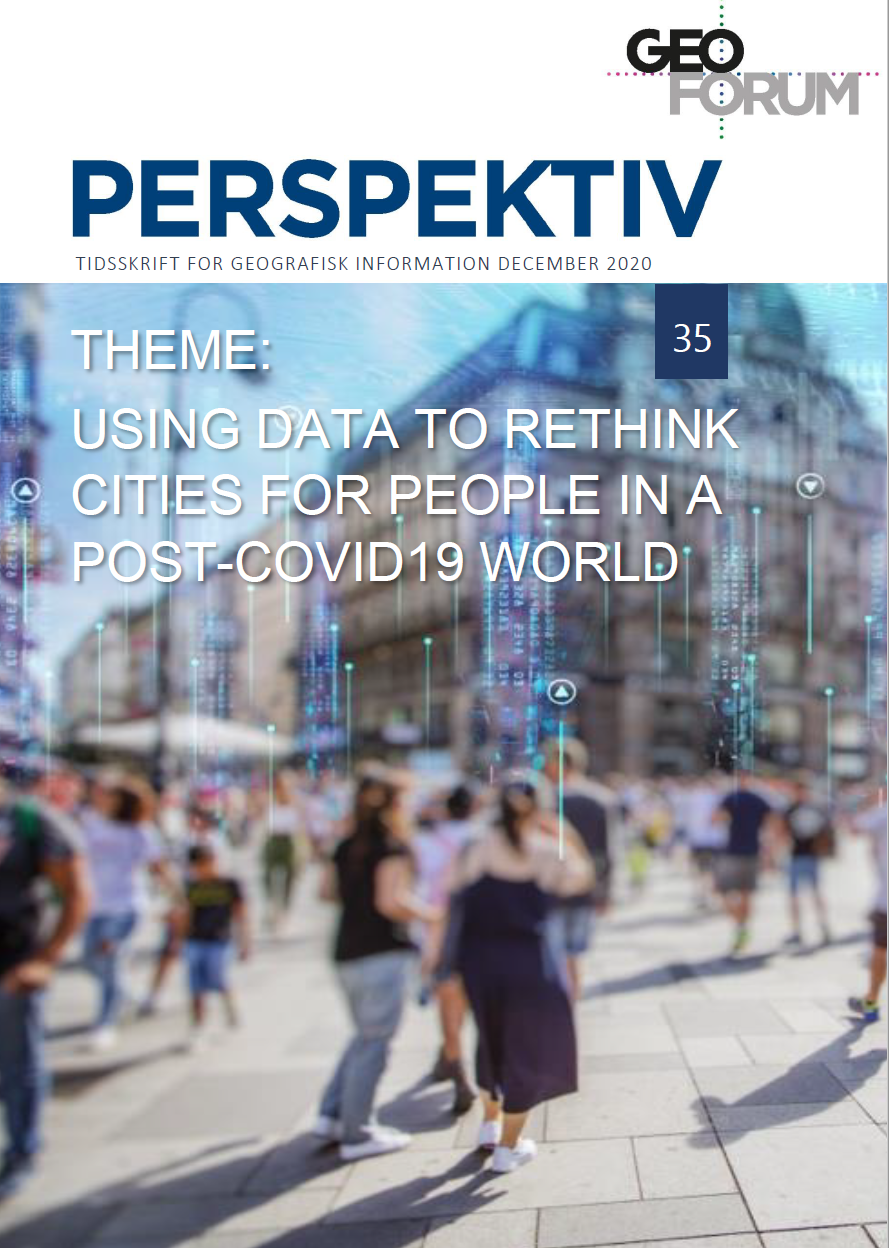Using data to Rethink Cities for people in a Post-COVID19 World
DOI:
https://doi.org/10.5278/ojs.perspektiv.v19i35.6422Abstract
People bring cities to life. They interact, work, socialise and travel. Without this, cities are just collections of buildings and infrastructure. The way we connect to cities is by developing a “sense of place”. The concept describes how we perceive and attach to places we use daily. This connection with cities changes over time but is always grounded in sense of place. Due to covid-19, this relationship and connection is on hiatus all over the world.
As we start planning for post-covid cities, we need to recognize the task and importance to better understand what the pandemics represents for cities and why it has and can change people’s sense of place so profoundly. One way to do this, is to turn to data - as a compass in uncertain times. Data can be seen as the bridge that will allow us to create new meaningful forms of value for people in the cities. Yet our collective ability to collect and organise this data and to exploit it in a way that delivers better urban services and a better society for everyone is at best formative and uneven.
Downloads
Published
Issue
Section
License
Authors publishing on Geoforum Perspektiv retain full but non-exclusive rights in their articles, and are required to use the Creative Commons license CC by-nc 4.0 when submitting their work.





